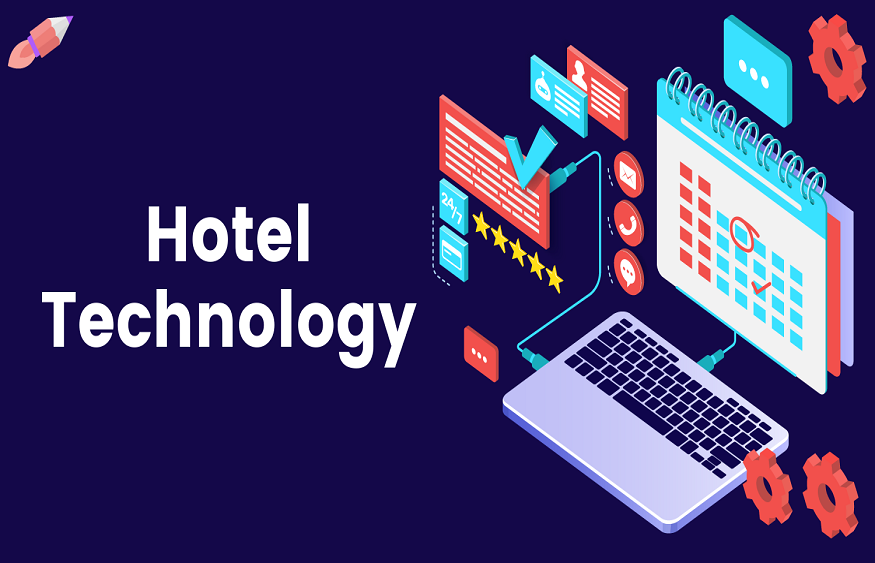In the fast-paced and competitive hospitality industry, hotels strive to deliver exceptional guest experiences while maximizing operational efficiency. One essential tool that has revolutionized hotel management is property management software. Also known as hotel software systems, these digital solutions have become indispensable for modern hoteliers. This article will delve into the numerous benefits that property management software offers to hotels, enabling them to streamline operations, enhance guest satisfaction, and boost profitability.
Streamlined Operations:
Property management software automates and centralizes various hotel tasks, ranging from reservations and check-ins to housekeeping and billing. This streamlining of operations reduces the burden on hotel staff, enabling them to focus on providing excellent guest service. With all essential data accessible from a single platform, staff members can work more efficiently, leading to smoother daily operations.
Efficient Reservation Management:
Gone are the days of managing reservations through manual entry or spreadsheets. Property management software allows hotels to manage reservations seamlessly. Guests can book rooms online, view availability in real-time, and even choose their preferred amenities. This real-time synchronization prevents overbooking and ensures accurate reservation tracking, enhancing the overall guest experience.
Enhanced Guest Experience:
Providing a superior guest experience is a top priority for any hotel. Property management software enables hotels to personalize guest interactions, keeping track of guest preferences and previous stays. With this data on hand, staff can tailor their service to meet individual needs, leading to more satisfied and loyal guests.
Integrated Point of Sale (POS) System:
Many property management software solutions come with integrated POS systems. This feature enables hotels to manage on-site amenities such as restaurants, bars, and gift shops seamlessly. It streamlines billing processes and inventory management while allowing guests to charge expenses directly to their rooms, simplifying the payment process.
Comprehensive Reporting and Analytics:
Hoteliers need access to accurate and timely data to make informed decisions. Property management software offers comprehensive reporting and analytics tools that provide valuable insights into occupancy rates, revenue streams, guest preferences, and more. These data-driven insights help hotels identify trends, optimize pricing, and refine marketing strategies to boost overall profitability.
Improved Housekeeping Management:
Efficient housekeeping is critical for maintaining a clean and welcoming environment for guests. Property management software assists in managing housekeeping schedules, room statuses, and maintenance requests. Housekeeping staff can update room statuses in real-time, ensuring better coordination and faster response times to guest needs.
Increased Security and Compliance:
Handling sensitive guest information requires robust security measures. Property management software systems implement data encryption and other security protocols to protect guest data from unauthorized access. Additionally, the software helps hotels comply with various regulations and data protection laws, minimizing the risk of legal issues.
Scalability and Flexibility:
As hotels grow and expand, their management software needs to keep pace. Property management software offers scalability, accommodating the needs of small independent hotels to large hotel chains. Additionally, these systems are often cloud-based, allowing hoteliers to access crucial data and manage their properties from anywhere with an internet connection.
Cost-Effectiveness:
By automating various tasks and optimizing operations, hotels can reduce labor costs and prevent revenue leakage due to human errors. Additionally, the increased efficiency leads to more bookings and improved guest satisfaction, contributing to higher revenues.
Eco-Friendly Practices:
Property management software promotes eco-friendly practices by reducing paper usage. Digital check-in and check-out processes, electronic invoicing, and online guest communication all contribute to a more sustainable approach to hotel management.
Seamless Integration with Third-Party Systems:
Property management software for hotels often comes with the ability to integrate with various third-party systems. This seamless integration enables hotels to connect with other essential tools, such as online travel agencies (OTAs), channel managers, and revenue management systems. By syncing data across different platforms, hotels can effectively manage room rates, availability, and bookings across multiple channels, expanding their reach and maximizing revenue potential.
Guest Feedback and Reputation Management:
Reputation is everything in the hospitality industry. Property management software can include features that facilitate guest feedback collection and reputation management. Hotels can send automated post-stay surveys to guests, encouraging them to share their experiences. Analyzing this feedback helps hotels identify areas for improvement and address guest concerns promptly, ultimately enhancing their online reputation and attracting more potential guests.
Mobile Accessibility and Guest Self-Service:
In the digital era, guests increasingly prefer self-service options. Property management software offers mobile accessibility through dedicated apps or web portals, allowing guests to manage their reservations, check-in, and check-out at their convenience. By providing self-service options, hotels not only cater to modern guest preferences but also reduce front desk queues and save time for both staff and guests.
Real-Time Analytics for Revenue Management:
Real-time statistics for revenue management are one of the most important benefits of property management software for hotels. Hoteliers may make data-driven decisions to optimise room rates and increase revenue if they have access to current information on occupancy rates, demand trends, and rival pricing. The software’s revenue management features help hotels implement dynamic pricing strategies, ensuring that room rates are adjusted in response to changing market conditions and maximizing revenue during peak periods. By leveraging real-time analytics, hotels can identify opportunities for upselling, offer targeted promotions, and achieve higher profitability without compromising guest satisfaction.
Moreover, real-time analytics enable hotel managers to make informed decisions on allocating resources effectively, ensuring that staffing levels match demand fluctuations. This adaptability allows hotels to optimize operational costs while maintaining a high level of service, resulting in improved guest experiences and increased overall profitability.
Conclusion
In conclusion, property management software, also known as hotel software systems, is a game-changer for the hospitality industry. It is a vital tool for any contemporary hotel because to the many advantages it provides, including improved guest experiences, streamlined operations, and eco-friendly practises. By embracing this technology, hotels can remain competitive, adjust to shifting consumer needs, and offer top-notch customer service. Property management software is still an essential investment for hotels looking for long-term success as the hospitality industry develops.




